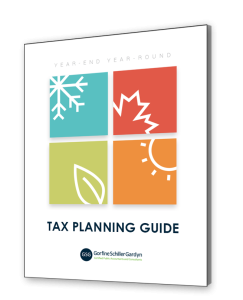Estate planning is not just a task for the wealthy. Even though federal tax implications kick in only if your estate exceeds $5,430,000, there are other issues that make estate planning important for most individuals.
Start your estate planning by meeting with an attorney and your accountant. They can instruct you in the essentials of estate tax law and the requirements for establishing an estate plan. A key part of estate planning is compiling the documents that will accomplish your goals.
A basic estate plan should include the following documents:
- Your will, which should name the guardian you choose for your minor children and an executor (personal representative) to carry out your instructions.
- A listing of your assets. Include your home and other properties, pension and retirement accounts (401(k) & IRAs), investments (noting the cost basis), automobiles, jewelry, and any other assets.
- Life insurance information such as your insurer, your policy number, the amount of insurance, and the location of your policies.
- Financial and business records, including real estate deeds, tax returns and related support papers, your social security number, investment statements, and stock and bond certificates.
- Funeral instructions, including your burial wishes and people to be notified upon your death.
- Medical information and a list of your doctors.
- Durable power of attorney, designating the individual(s) you select to act on your behalf if you’re incapacitated.
- Health care proxy naming the individual(s) you want to make health care decisions for you if you aren’t capable.
Keep your original documents in a fireproof safe or with your attorney. Put your list of documents and the copies in a binder at home and tell your executor where the documents are located. If you would like assistance with your estate planning, please contact our office.
Categories: Tax Planning, Estate Tax




